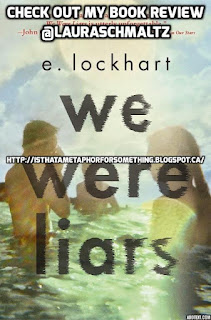Console Wars talks about the battle between Sega and Nintendo in the battle for champion of the video game industry. As someone who never owned a game console, this wasn't exactly up my alley. However, I remember boys heading straight home after school to play Super Nintendo, and I can see how much my young son loves playing video games on the computer. My vague memories of Sega only involve Sonic the Hedgehog- I really remember that Nintendo was king- but this book showed me how Sega played a very revolutionary role in the evolution of video games and game consoles.
I think that lot of boys would be interested in reading this book (and any girls who are interested in the video game culture). If you want to give your class a taste of what this book has in store, have them read the foreword by Seth Rogen and Evan Goldberg- it is hilarious.
While this book is not something that I would teach directly, I might look at pulling pieces to include in a video game/media unit. I have taught the documentary King of Kong, and I find that kids love it. I'm sure that there is plenty of rich material that I have not explored (storytelling in video games, anyone?), and I definitely think that it is a world worth looking into.
Food for thought... how can the English Language Arts classroom bring in the "real world" interests of students? What would you like to see in your English class?








